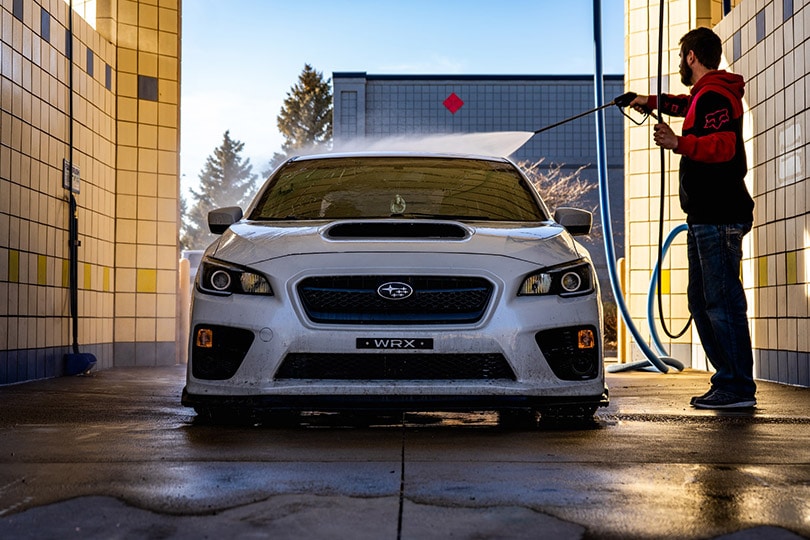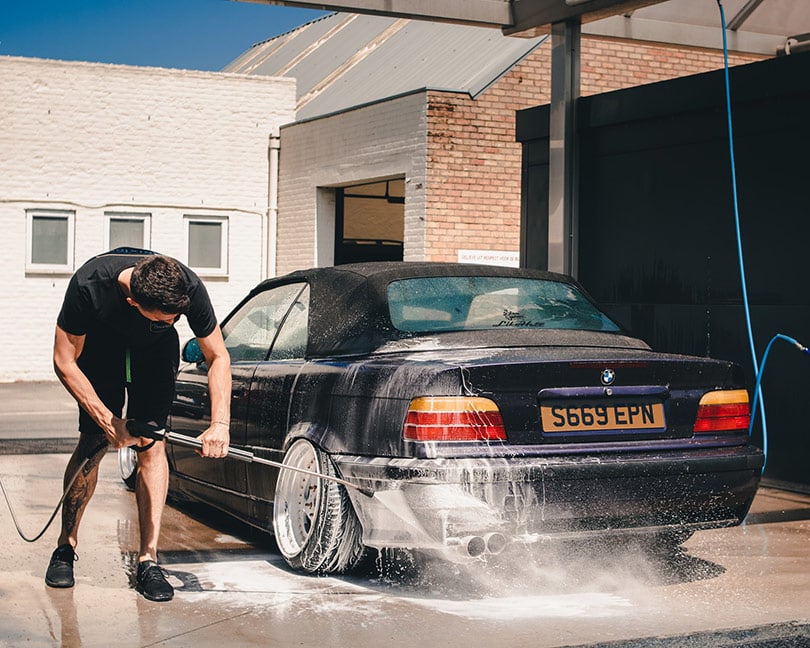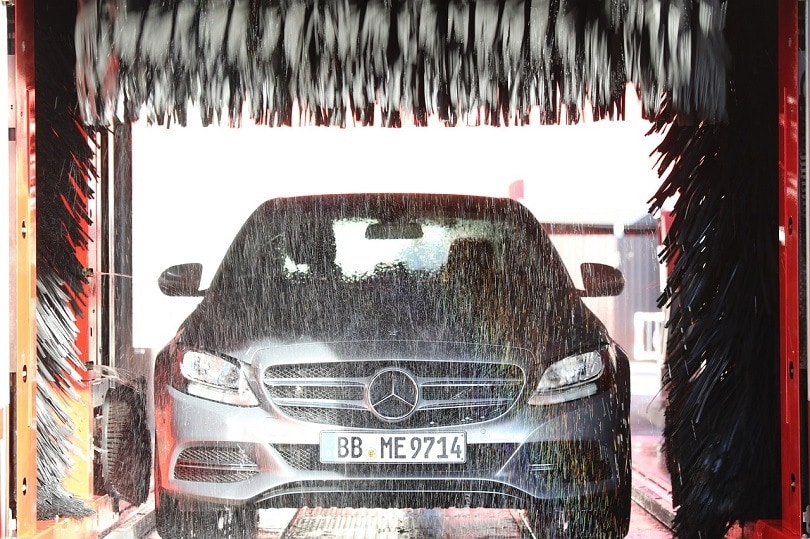Do Car Washes Recycle Water? Process, Usage & FAQ
-

- Last updated:

The car wash industry in the United States is large. There are over 60,000 individual locations across the country employing over 200,000 people. That is a lot of cars getting washed and a lot of water being used. In an age where climate change, conservation, and green energy are at the forefront of a lot of minds, one has to wonder if car washes recycle their water. It would be an awful waste to have car washes only use water once before flushing it down the drain. So, do car washes recycle their water? And if so, how does the recycling process work?
The answer is yes, car washes do regularly recycle the water used during the car washing process. In some cases, the amount of recycled water used can be upwards of 85% or more. The amount of recycled water in a car wash drastically cuts down on the amount of water that is being pulled from local water sources. In some locations, car washes must install a water recycling system for the business to obtain a permit. In other cases, owners install the system to help reduce the amount of water that needs to be bought from local municipalities and to help cut down on the amount of wastewater created.
So, in most cases, car washes do indeed recycle a large amount of water. The amount recycled will depend on the type of car wash and the type of recycling system being used.
How Do Car Washes Recycle Water?
The most common way for car washes to recycle water is to use settling tanks. Settling tanks are installed underneath the car wash. As water is used in the car wash above, it is directed downward into large tanks. The water then sits in the tanks and allows solid particles to sink and settle at the bottom. Solid particles like rocks, sand, and dirt can damage a car if they’re blown out of a high-pressure water gun, so the tanks work to ensure that none of these particles make it back into the water supply.
After the water sits and settles, it is pulled through a cleaning system that removes traces of soap, grime, and bad odors. The treatment returns the water to a clean state. The clean water is returned to the initial tank, where it is then used to rinse off cars coming through the car wash.
The cycle goes: rinse, drain, settle, clean, and return. Cars get rinsed, the water is drained into tanks, the water is cleaned, and then returned to the rinsing tank.

How Much Water Do Car Washes Typically Use?
As you can imagine, car washes can use a lot of water. Car washes typically use between 35 and 75 gallons per wash. The average amount of water used per car is generally around 45 gallons. That means a busy car wash that sees 100 cars per day can use 4,500 gallons of water or more. Some car washes will use less, and other car washes will use more.
Car washes use less water per wash than an owner will use at home. Estimates say that an average car owner will use between 80 and 150 gallons of water to wash their car at home. The car wash’s usage starts ballooning because of the number of cars being washed per day.
The most water-intensive car washes are tunnels and conveyors where cars are whisked through a cleaning system on a belt. These car washes can use 120 gallons per car. Tunnel car washes can also accommodate many more cars per hour. The largest and busiest of these car washes can see 500 cars per day which can result in water usage of 60,000 gallons or more. The good news is that these large tunnel car washes also have equally large water recycling systems installed to cope with the volume of water being used daily.

Where Is the Recycled Water Used?
The recycled water is primarily used in the initial and middle rinsing cycles of a car wash. Most car wash owners make it so that the final wash is done with fresh water instead of recycled water. That eliminates the risk of accidentally leaving a car streaky from recycled water that did not get processed as thoroughly as initially thought.
Some car washes will use 90% or more of their water from their recycled water supplies. The remaining 10% is used inside the business itself (bathrooms, sinks, and water fountains) and for the final rinsing phase during the wash cycle.
Conclusion
To meet local regulations, save money on water, and reduce the amount of wastewater created, car washes do recycle water. Car washes actually recycle the majority of the water being used. The most efficient car washes will recycle up to 90% of their water. But even the less efficient car washes will still recycle over half. That is good news for both business owners and climate activists looking to see the amount of water that is used and wasted decrease. Using a car wash can even save water over washing your car at home, even if it costs a little more.
- You Might Also Be Interested In: Can Electric Car Batteries Be Recycled?
Featured Image Credit: nick Kaufman, Unsplash
Contents

